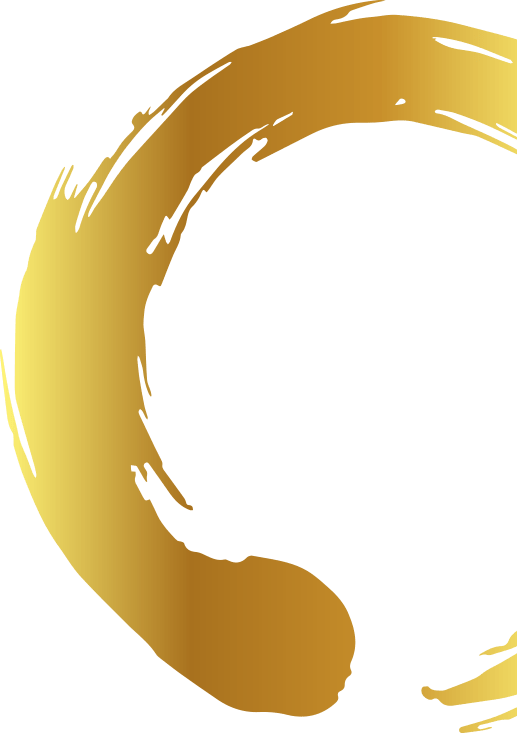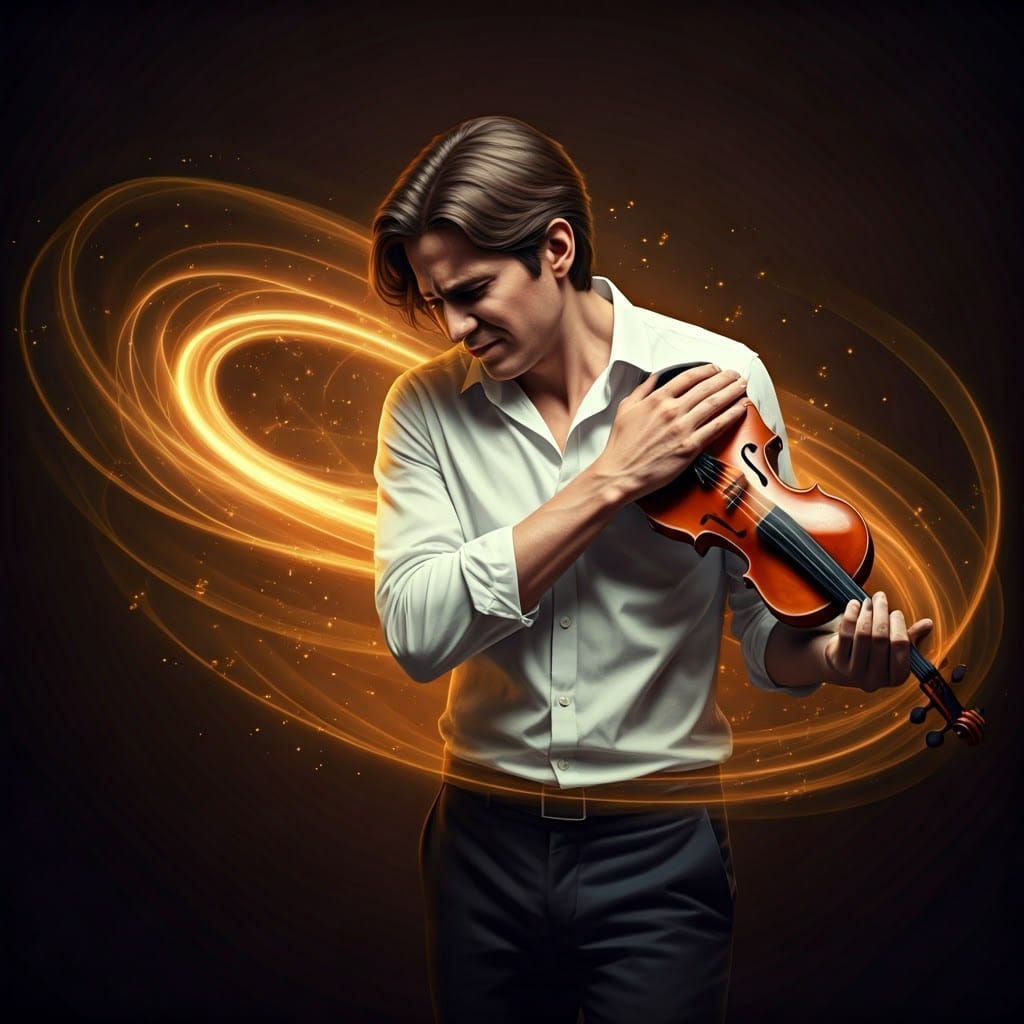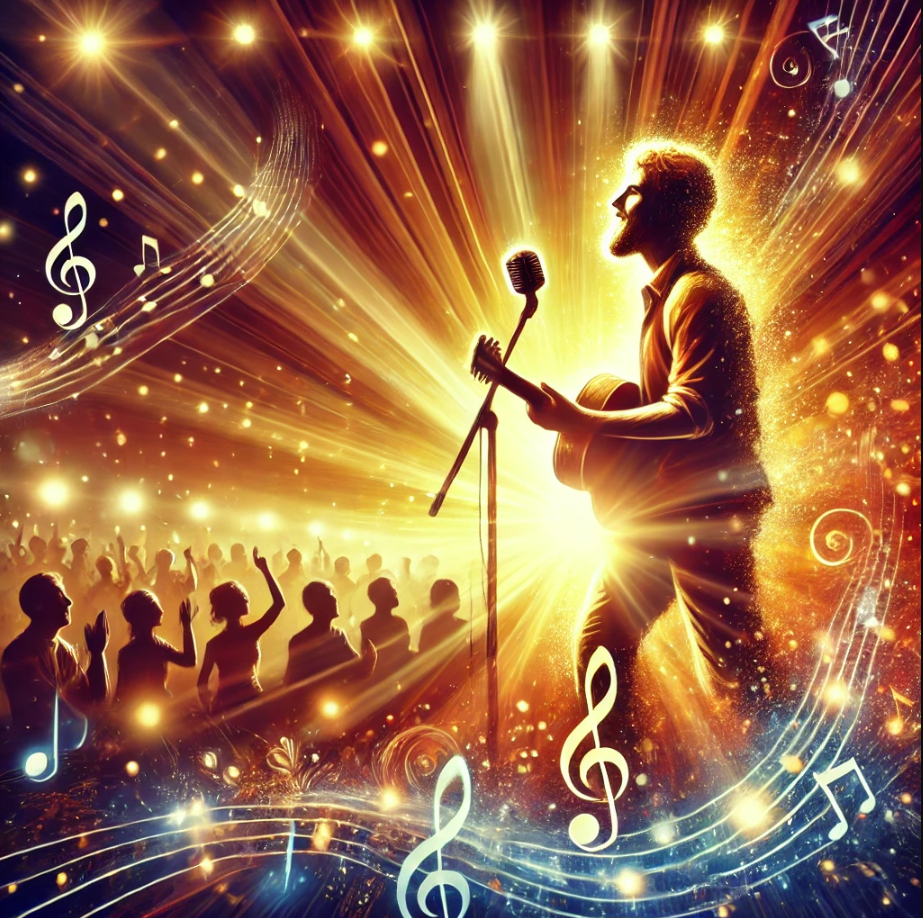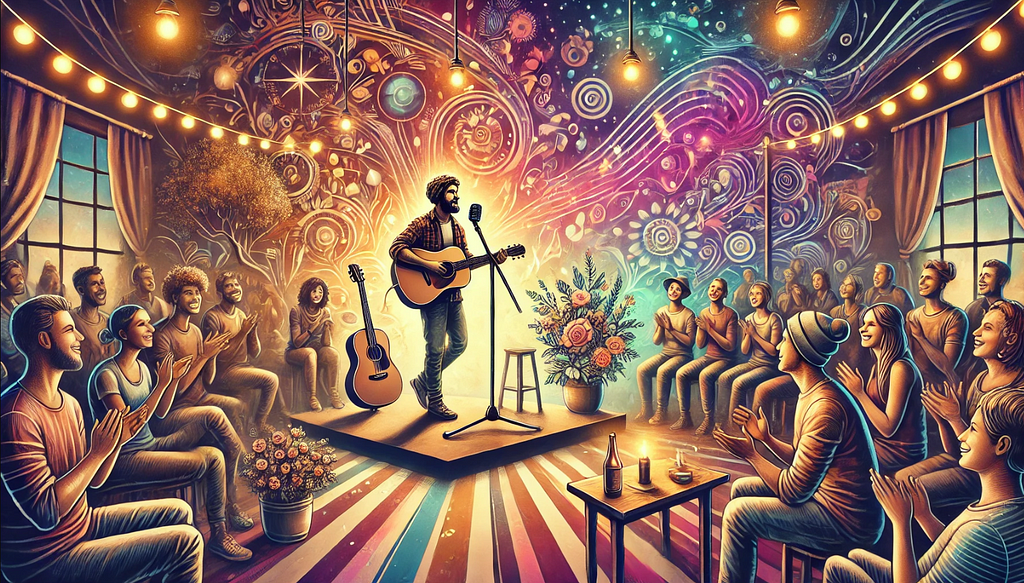(See below for an invitation to our second roundtable conversation about reimagining how we make a living in the arts.)
What is it like to make a living in the arts?
Many people outside the arts have an idealized view of what being a professional, or even hobbyist, musician or artist looks like. When I tell people I’m a professional violinist, they light up and tell me how much they love music and how they played piano when they were ten, and how much the arts mean to them.
I get that enthusiasm. I love music, too. But the ugly truth is that being a professional musician or artist can be a real grind at times, just as much a rat race as other professions. It can seem to many of us in the arts that something has gone terribly wrong, only we don’t know exactly when or how it happened.
Many young actors who want to “make it,” for instance, face the daunting task of climbing a cut-throat social hierarchy that requires them to take endless crummy parts that don’t pay and don’t feed their souls at all. In order to survive, they almost always have side jobs they don’t like. Their acting career then becomes one in which they are always exhausted, endlessly busy, and have little connection with truly fulfilling creative activities. Does it really have to be this way?
Many visual artists, upon entering arts school, discover that their authentic desire for beauty gets dismissed by their professors as silly and naive. They are encouraged, instead, to make paintings that are merely “edgy.” Others discover institutionalized perfectionism so toxic they grow to fear genuine creativity. What kind of arts education is this?
It’s not any better for those of us lucky enough to have a good-paying job in the artistic field of our choice. Often, it can feel like we’re a hamster on a wheel, trying to create cost-effective productions in which there’s no real art or creativity. What kind of “arts industry” is it that doesn’t want the creations of our heart?
Something has, indeed, gone terribly wrong in the arts world. As artists, we are constantly faced with a terrible choice between our love and our survival. Do we find financial stability by using our creativity in service of our economic machine? Or do we accept penury as the inevitable price for artistic fulfillment?
It doesn’t have to be this way.
We don’t have to accept the rules and incentives of the machine. We don’t have to fork over our love and creativity into the endless mill of commodification. We don’t have to squash what is alive and beautiful inside us in order to fit into more socially acceptable forms of creating.
How do we change this? Is it really possible to align our survival and our love? Is it really possible to break free from the machine, to create deep from the heart and get paid well for it? Is it really possible to be fully supported while using our art to bring healing and wholeness to the world?
How do we change this? Is it really possible to align our survival and our love? Is it really possible to break free from the machine, to create deep from the heart and get paid well for it? Is it really possible to be fully supported while using our art to bring healing and wholeness to the world?
While I don’t have all the answers to these questions, I do have an inkling: I inkle that the answers lie with Soulforce. Soulforce is the radiance within, the transformative energy that comes from facing down the machine from a place wholeness, aliveness, and trust in the wisdom of your soul.
Soulforce worked for Gandhi. His movement of non-violent resistance was called “satyagraha,” the word from which Soulforce is a translation. He stood in the truth that India should be free from British colonial rule. And because he did this from a place of wholeness, aliveness, and trust in the wisdom of his own soul, his message resonated very deeply his compatriots. This resonance worked like the steps of a marching band on a bridge, rippling out and shaking the British Raj to the ground. Soulforce works.
I don’t know the exact ways in which our arts industries and education system will be reformed. But I do know that our Soulforce will guide the way. Our job, then, is to reconnect with our Soulforce and begin to let it guide our choices as we figure out how to survive in the machine. Our Soulforce has an intelligence deeper than we know. If we trust it, it can help us align our love and our survival, and thereby create a more beautiful world.
Please join me for our second roundtable conversation in which we will reimagine the ways in which we create and make a living in the arts. This second conversation will feature an exploration of the ways our own gifts as artists intersect with the needs of our audiences and communities. I invite you to come to share your love, wounds, visions, and longings.
Thursday
9/7/23
7:30-9:00EDT
Via Zoom
Email me at [email protected] for the Zoom link.
Joseph
Image credit: An AI creation I elicited from NightCafe using the title of this essay as a prompt.




